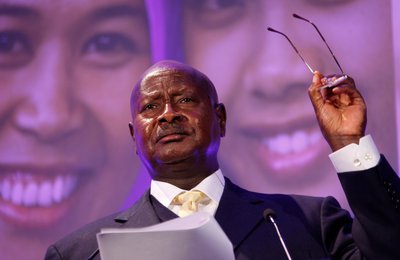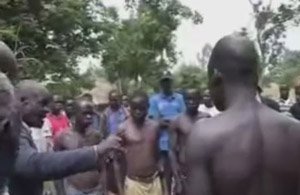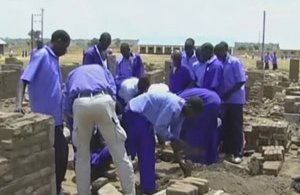The Constitutional Court in Uganda has halted the trial of former LRA commander Col. Thomas Kwoyelo. Kwoyelo was facing trial on multiple charges amounting to crimes against humanity. Kwoyelo had applied for amnesty, for which he was entitled under the law, but the Director of Public Prosecution and the Amnesty Commission had not issued him with a Certificate.

In a unanimous judgement signed by all five Justices of the Court of Appeal, sitting as a Constitutional Court, the court said that the amnesty act of Uganda is constitutional. Furthermore by initially refusing to authorise grant of an amnesty Certificate to Kwoyelo, the Director of Public Prosecutions was held to have denied him equal treatment and protection under the law.
The significance of the judgement
The Constitutional court ruling touched upon several issues of critical importance in Uganda namely:
- The amnesty law in Uganda is constitutional;
- The application of amnesty in Uganda is not inconsistent with Uganda's obligation under international law;
- The Parliament of Uganda has powers to make laws on any matter for the peace, order, development and good governance of Uganda;
- Uganda's amnesty act is uniquely placed as a transitional initiative meant to be used as one of the many possible ways of bringing the rebellion to an end by granting amnesty to those who renounced their activities;
- Uganda's amnesty law was not self-imposed and does not cover government officials and Uganda Peoples Defence Forces, or state actors generally, and is distinguishable from the South African Amnesty under the Truth and Reconcilation Commision Act;
- Uganda's amnesty law does not whittle down the prosecutorial powers of the Director of Public Prosecutions or interfere with its independence as the director of prosecutions can still prosecute state actors who committed crimes and rebels who do not denounce rebellion or are excluded under the law by statutory instrument;
- There is no uniform international standard or practice which prohibit states from granting amnesty;
- Uganda can use amnesty to solve its domestic problems while still in compliance of its international obligations;
- Pardon is a legal right as long as requirements for it grant has been fulfilled.
Civil society reaction
What happens next?
Either way, there is need to deal with the details of Kwoyelo involvement in the insurgency and its legacies on victims. Kwoyelo was perceived by some as a victim of circumstances and the ruling confirmed the independence of the judiciary in Uganda, especially the Constitutional Court judges. Nothing however was mentioned in the judgment on what should happen to victim groups. While court acknowledged the importance of dealing with the legacies of the conflicts through mechanisms including prosecution, the ruling demonstrated the complications any formal court system will have to grapple with in future accountability processes.
Contrary to the principles of accountability and reconciliation agreed in Juba, between the LRA and government of Uganda, the Court made no direction on what should follow Kwoyelo’s release. This begs the question if the trial is halted then what? Under Agenda Item 3 of the Juba Peace Talks a whole range of accountability and reconciliation mechanisms were agreed upon and so could this be an opportunity to explore the other mechanisms including truth seeking and traditional justice approaches? Kwoyelo will most likely be given his long overdue amnesty certificate but how will he reintegrate into society following this immense publicity as a war criminal? Will the pre-designed witness protection programmes initially accorded to those witnesses to testify against Kwoyelo, now be extended to Kwoyelo himself? Could this be used as an incentive for Kwoyelo to clarify his roles and participation in the insurgency?












